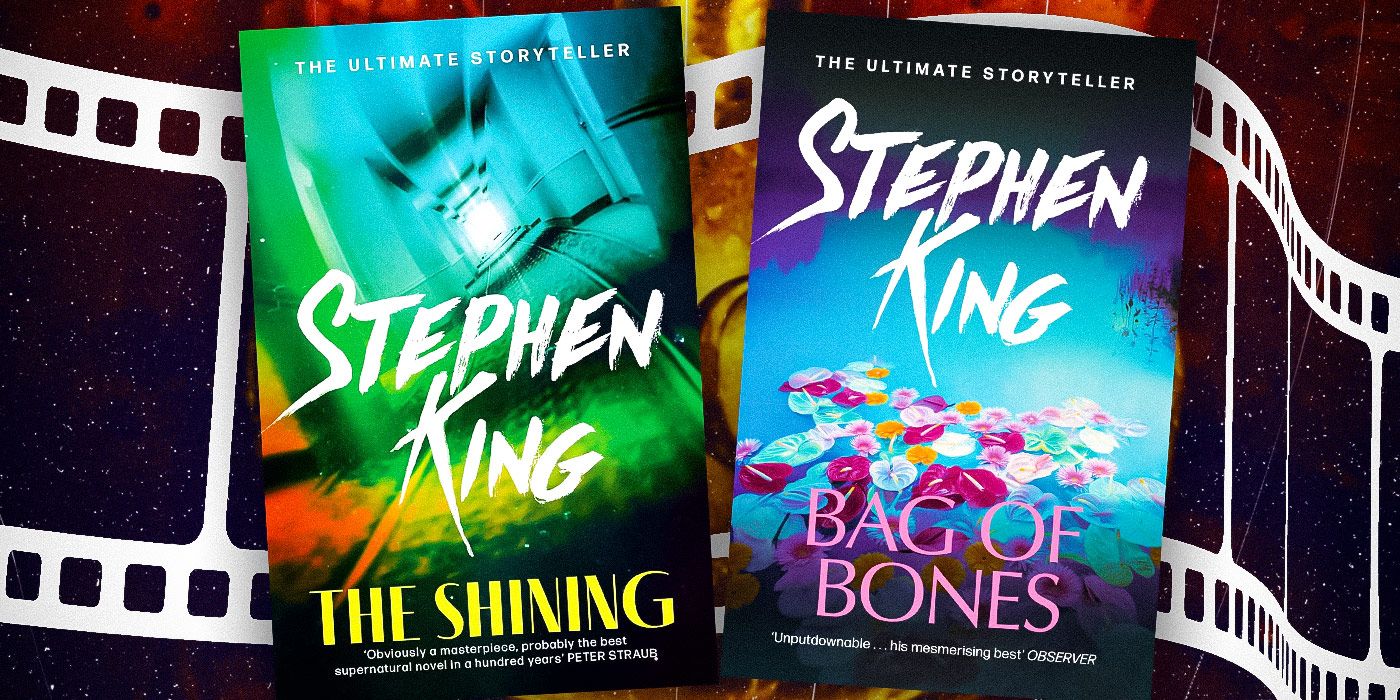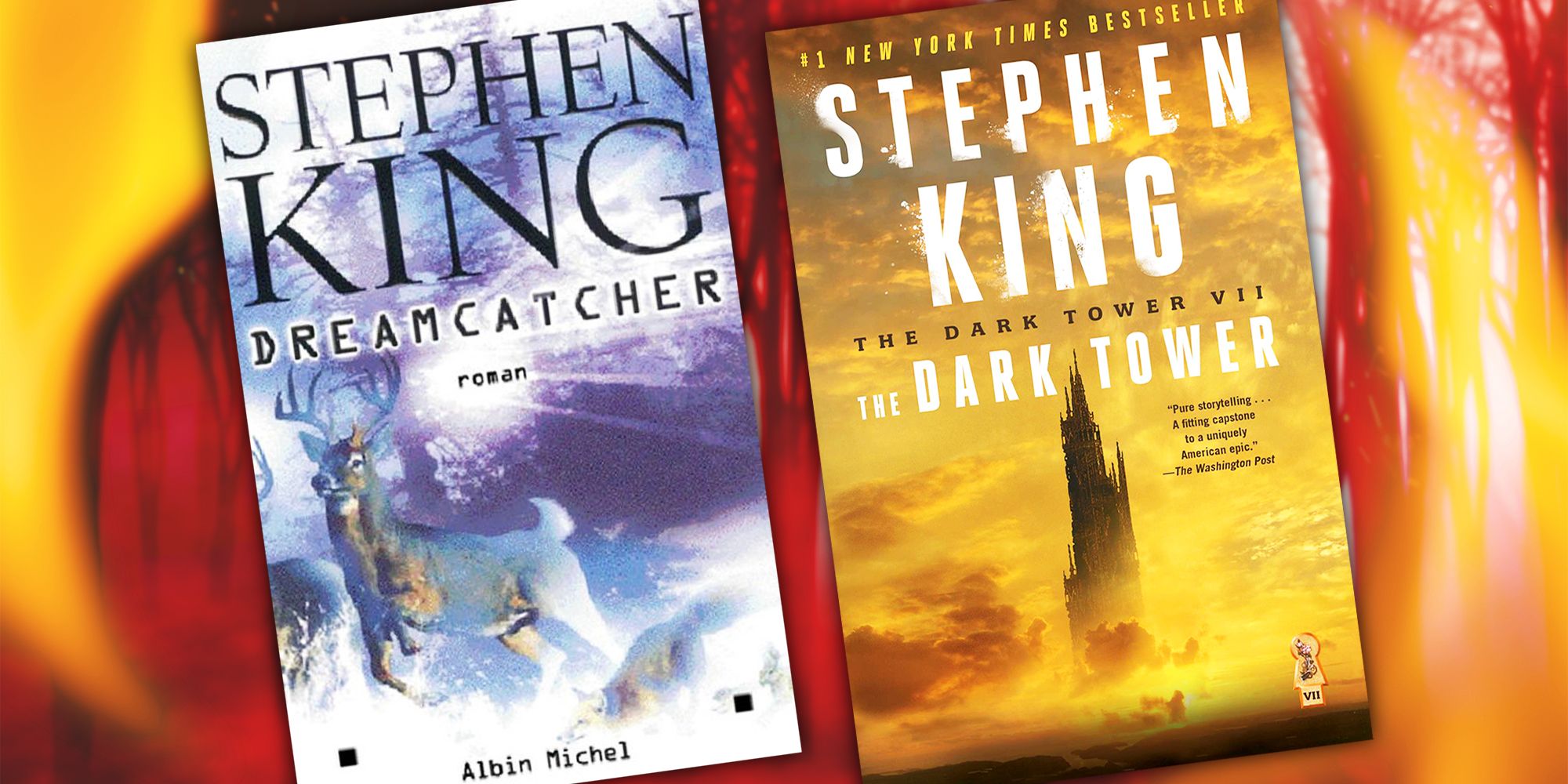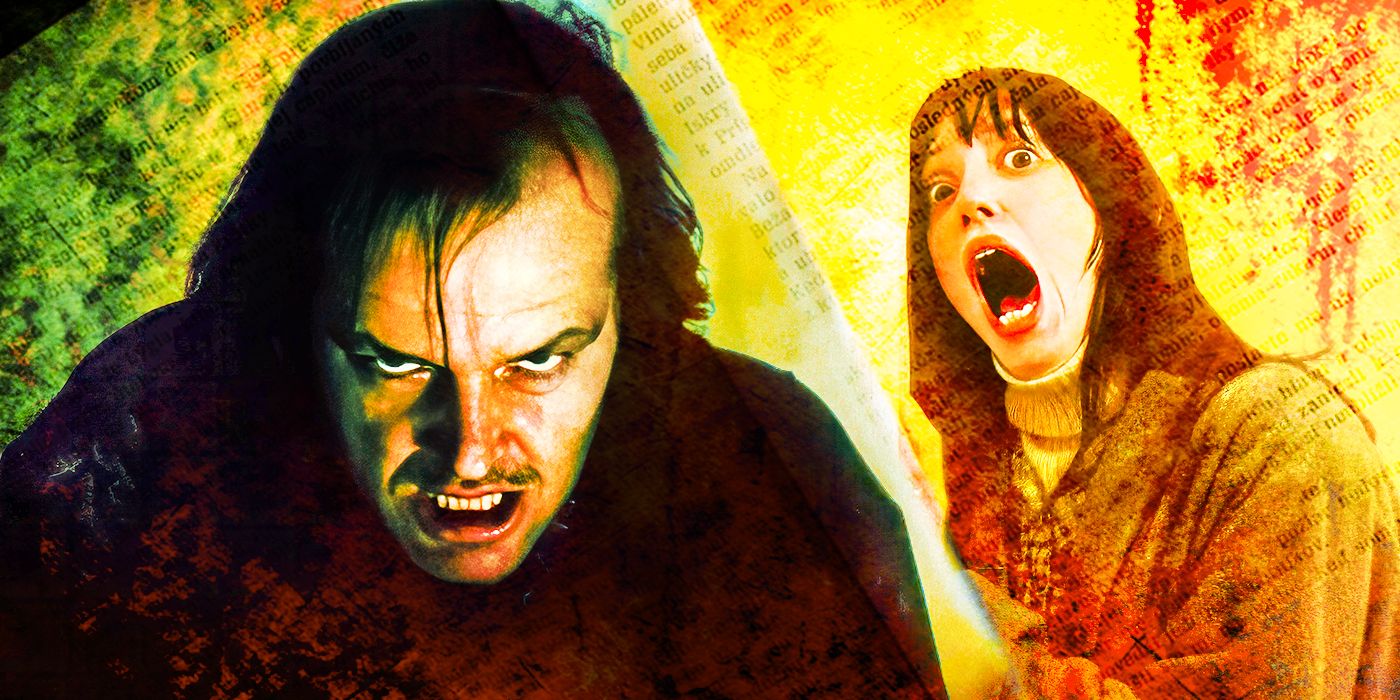Stephen King is often hailed as the “king of horror,” and the author’s best human villain perfectly captures why his books resonate with readers as much as they do. King has created no shortage of great villains over the course of his 50-year career, with some of his best including Pennywise and Randall Flagg. Of course, characters like Pennywise are terrifying because they take readers’ fears and give them a supernatural form. However, King is also great at crafting more human villains — and in some ways, they’re scarier than his more extraordinary threats.
Some of King’s best books place human villains at the center of their stories, and others blur the lines between what’s caused by supernatural forces and what’s the result of human actions. The latter is the case when it comes to King’s best human villain: Jack Torrance. Thanks to Jack Nicholson’s iconic performance in Stanley Kubrick’s adaptation of The Shining, Jack has become an iconic figure in his own right. The villain is far more nuanced in the source material, though, making him a shining example of King’s writing talent.
The Shining’s Jack Torrance Is Stephen King’s Best Human Villain
His Complexity Makes Him One Of The Author’s Best-Written Characters
While there’s plenty of room for purely evil antagonists in the horror genre, more complex characters like The Shining‘s Jack Torrance tend to be more interesting. King’s book introduces Jack as a deeply flawed human being, one who is often abusive and grappling with alcoholism. King doesn’t attempt to paint Jack as a wholly good or bad person, letting his actions represent his character instead. And even when Jack is doing something detestable, he often feels consumed by guilt. He’s an incredibly human character, even if he’s not a likable one.
This is what makes his descent into madness so interesting in
The Shining,
as it’s hard to tell if it’s Jack’s declining mental state or the Overlook Hotel causing his violent behavior.
This is what makes his descent into madness so interesting in The Shining, as it’s hard to tell if it’s Jack’s declining mental state or the Overlook Hotel causing his violent behavior. There are clearly supernatural elements in The Shining, but isolation and shame seem to affect Jack just as much. It’s not always easy to sympathize with horror villains, even King’s, but the author ensures that readers can understand and even feel something for Jack. It may be impossible to root for him, but his complexity makes him a fascinating character to follow.
Jack Torrance Perfectly Demonstrates Why Stephen King’s Books Work So Well
The Author’s Ability To Blend Horror & Humanity Is A Huge Appeal
Jack Torrance perfectly captures why King’s horror books are so popular: because they blend more outlandish terrors with an undeniable humanity. Exploring topics like abuse and alcoholism through Jack makes him feel like a very grounded and realistic character. While the Overlook Hotel and its ghosts deliver on the supernatural scares, Jack’s descent into villainy is arguably more haunting. That’s because it proves that humans can be monsters too, forcing readers to face the darkness that exists inside ordinary people.

Related
Stephen King’s 10 Best Ghost Stories, Ranked
Stephen King is a legend of the horror genre, from Carrie to Pet Semetary, but which of his popular books has to do with spirits and ghost stories?
Jack’s character capitalizes on more human terrors, and this makes him more compelling than a lot of King’s supernatural threats. The fact that the author writes him with nuance only adds to his impressive characterization, highlighting that evil and the desire to do good can coexist. Figures like Jack Torrance will leave readers looking over their shoulders in the real world, as it’s easy enough to imagine them there. And Jack isn’t the only human villain King writes that has this effect, even if he’s the most interesting.
Stephen King Has A Knack For Writing Fascinating Human Villains
Annie Wilkes, Margaret White, & Mrs. Carmody Are Among His Other Great Antagonists
King’s other human villains may not be on the same level as Jack, but they continue the trend of injecting more human horrors into the author’s novels. In Carrie, the title character’s telekinetic powers bring destruction upon her town. However, her abusive mother is scarier in many ways, as her cruelty and religious trauma ultimately contribute to Carrie’s massacre. And such things exist in real life, while telekinesis is hardly something readers need to worry about. This makes Carrie’s mother feel more realistic, just like Jack — albeit slightly less sympathetic.

Related
10 Times Stephen King Books Cleverly Reference His Own Stories & Adaptations
Stephen King’s books are often self-referential, containing nods to his books and movies, appearances of familiar locations and characters, and more.
The same can be said of villains like The Mist‘s Mrs. Carmody and Misery‘s Annie Wilkes. Mrs. Carmody demonstrates a similar fanaticism to Carrie’s mother, but she also shows the dangers of spreading extreme views to a group of impressionable people. Meanwhile, Annie Wilkes reveals that people can be far more violent and ruthless than they initially seem. Like Jack, Annie also seems sympathetic at times, showcasing Stephen King‘s knack for driving home the haunting reality of how terrifying seemingly ordinary people can be.

The Shining
The Shining is an exceptional setup for a horror and terror story that perfectly blends between good and evil. With terror, violence, and suspicion, this book makes a compelling read where it captures your imagination, and honestly, it’s not for the faint-hearted.
The main events of this book revolve around the Overlook Hotel, an entirely isolated historical structure where the Torrance family resides. This family consists of Jack, who is the husband, Wendy, the wife, and their son Danny.
Before Jack gets hired as the hotel caretaker, weird events happened where the previous caretaker Delbert Grady brutally killed his entire family. For this reason, the hotel has consequently housed horrible murders, illicit affairs, and mob-style executions. As always, let’s keep spoiler alerts minimum to what suspense and terror the book entails.
Jack is a recovering alcoholic trying to fight anger issues, but when alone, he appears to be insane and pushed into hallucinations. The more the Torrance family stays at the hotel, the more haunting and powerful the story becomes, making this book fascinating. At some point, Danny, who is supernaturally gifted and remarkably perceptive, is plagued with disturbing visions, and a corpse tries to choke him in room 217.
It is in the conclusion that you will find the book more surprising, including scary moments of self-mutilation and slashing razor blades. You will love reading through the most dreadful scenes with stunning and full-color illustrations.

